What is the Origin of Saluting and Why is the Royal Naval Salute Different to the Army?
In this platinum Jubilee year of Queen Elizabeth II we will see many military parades and salutes to her. But what is the origin of the military salute and why is the Royal Naval salute different to that of the British Army?
Guernsey and the French Revolution
The years following the French Revolution in 1789 were dramatic in the history of the island. Many emigres found refuge in Guernsey and the island even ended up as a centre for a spy network operating against the newly formed republic. In this article we look at this pivotal period in Guernsey history.
How Were the Battlefields of WWI Cleared up After the War Ended ?
Whilst the First World War was a truly global conflict the area of devastation on the Western Front was, compared to WWII, more restricted in size. The devastation though was much more concentrated. So, once the killing had stopped how were the bloody, churned up, gas drenched battlefields cleaned up ?
Herm’s War – Herm Island’s Occupation Years
Much has been written about the occupation and liberation of Guernsey from the Germans in World War II. But what about Guernsey’s nearest neighbour Herm? What was her war like?<
Exploring a WWII Time Capsule – The Les Islets Command Post
The Channel Islands were the most heavily fortified part of Hitlers’ Atlantic wall, particularly Alderney and Guernsey as the outlying islands in the Channel. So when, in 2018, a building project on Guernsey’s West coast unearthed a bunker complex that hadn’t seen the light of day since the war’s end you’ll understand our excitement when we were invited to view it prior to it being reburied and built upon.
Why did Britain and France not declare war on the Soviet Union when the Red Army marched on Poland in September 1939?
During September 1939 both Germany and the Soviet Union invaded Poland. Both Britain and France had pledged to defend Poland. So why didn’t the allies declare war on the Soviet union as well as Germany?
The Redcoats are Coming ! – But Why Were the British ‘Red Coats’, Red?
Ever wondered why the iconic symbol of British Empire and military prowess – the’Red Coats’ – are red? The answer might surprise you! Why did the British Army Wear Red ? Its official adoption dates from February 1645, when in the middle of the English Civil War, the English Parliament passed the New Model Army ordinance. The New Model Army The New Model Army ordinance of 1645 prescribed that the English...
Guernsey’s Buried Artillery – Guns in Victoria Gardens
Standing opposite each other in Victoria Gardens opposite the Town Fire Station, like sentinels from another age, you’ll find two heavy calibre artillery pieces – trophies of a previous war. They’re not British or even French but German and date back not to the dark days of Occupation but to the First World War. How they came to be here and their survival through another world war, and subsequent re-discovery, is even more fascinating.
The End of World War One : The 11th Hour of the 11th Day of the 11th Month
1918 – At the eleventh hour of the eleventh day of the eleventh month an armistice, signed 6 hours before in French marshal Ferdinand Foch’s railway carriage at Compiegne, France, took effect between the Allies and the Central Powers, bringing the First World War to a close after 4 years, 3 months and 9 days of fighting.
Guernsey’s WWI Military & Convalescence Hospitals
Whilst the RGLI can be considered Guernsey’s ‘official’ response to the war it wasn’t the islands only one. One such contribution was the creation of a number of hospital facilities right here on the island for soldiers who were returning sick or wounded from the trenches.
English Words that Used To Have Vastly Different Meanings To What We Understand Today
How would you rate your vocabulary ? Average; Better than Average ; Exceptional ?
It may not matter how good you think your command of English is because in this article we reveal some surprising revelations about some of the words, you may have thought you had a thorough understanding of, had, in point of fact, some VERY different meanings in the past.
The RGLI’s War In Photograph and Film
WWI saw the development of a form of mass media – copious recordings of events both in print, photographs and film on a scale not seen before. We have real time recordings of events that illuminate, educate and terrify us in equal measure. In this article we look at some of the media coverage that was created around The Royal Guernsey Light Infantry.
A Naval Historical First – The Battle of the Ironclads
When we picture Naval vessels in a historical context we often see them in some very fixed regonisable form we rarely think about them in their interim ‘ugly duckling’ phases. Such was the state of affairs when the naval first of the ‘The Battle of the Iron Clads’ occurred.
The Royal Guernsey Light Infantry – A Timeline
WWI has become a byword for slaughter on an unimaginable scale. It was war on an industrial scale. No country in Europe was immune from its effects even Guernsey. In this article we look at the main timeline of the Royal Guernsey Light Infantry, or R.G.L.I, which was Guernsey’s patriotic response to Britain’s call to arms.
How did WWI End ?
The First World War, which has become a byword for a static war of attrition, ended in 1918 just as it had begun in 1914, as a mobile war. But it was a final throw of the dice by the Germans in the Sping of 1918 that was to be a ‘catalyst of the end’.

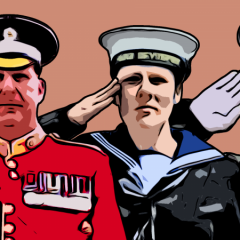
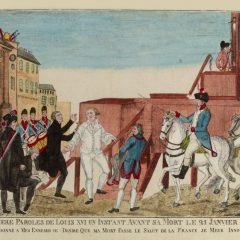
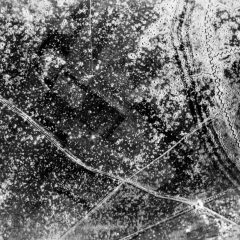

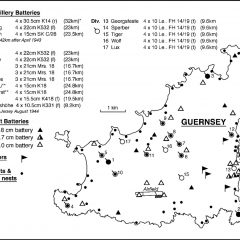
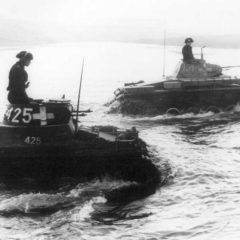
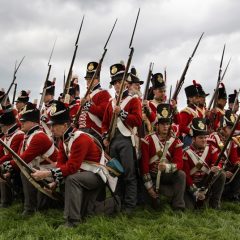
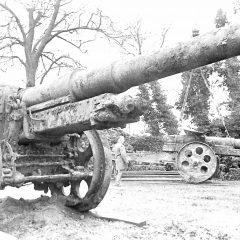
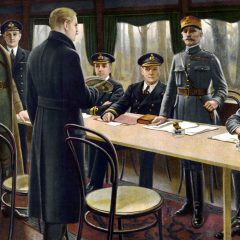
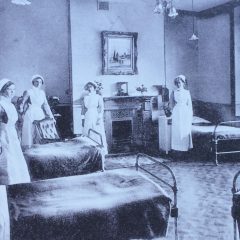

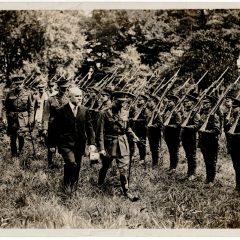

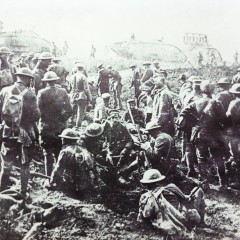
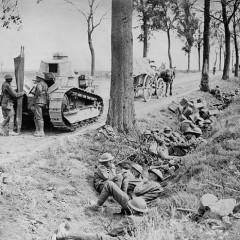


You must be logged in to post a comment.